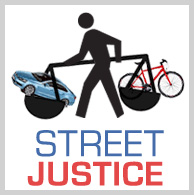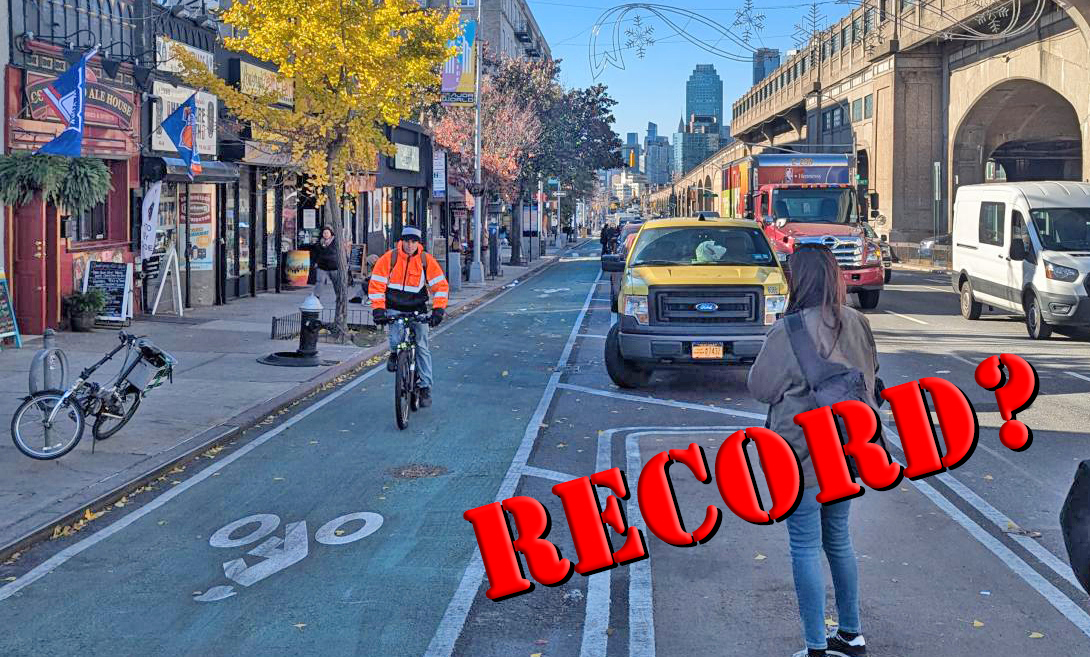This is part of a series of posts on the workings of the New York State Department of Motor Vehicles, its role in deterring or facilitating traffic violence, and agency reforms that could make streets and roads safer.
Last week I wrote about a key shortcoming in the Department of Motor Vehicles safety hearing program: DMV holds these hearings to review drivers' licenses in only a subset of the crashes resulting in a fatality. But after a conversation I had last week with a representative of the DMV legal department, it appears that potentially any crash victim can bring a complaint seeking a safety hearing to review the license of the driver causing the crash.
DMV rules say that a hearing can be initiated by a "complaint," and clearly indicate that such hearings may be held following a fatal crash. But the specific procedure to initiate a complaint isn't spelled out in those rules or elsewhere on the DMV website. It is therefore not surprising that the DMV representative I spoke with told me she has not seen a citizen-initiated safety hearing in recent memory.
But there are powerful reasons why crash victims can and should seek a safety hearing. As detailed almost daily on Streetsblog, the criminal justice system addresses only a small percentage of violent crashes that result in injury or death, often with no more than a slap on the wrist. Even the traffic violation system run by DMV fails to provide meaningful consequences to sober, reckless drivers, as demonstrated following the crashes that killed Allie Liao and Mathieu Lefevre. Safety hearings hold the possibility of a third source of state-authorized sanctions for reckless drivers that (unlike criminal and Traffic Violations Bureau proceedings) does not depend on procedures stacked so heavily in favor of the driver.
There is of course a resource issue at the bottom of this. It would trivialize and overwhelm the safety hearing program if every victim of a dangerous driving maneuver demanded a hearing against the driver. No doubt DMV would invoke a lack of resources to limit hearings to serious cases, and rightfully so. But in many, many cases, the driving behavior responsible for a nonfatal crash is just as reckless as the driving that causes a fatality. There is no principled basis for refusing a hearing in such a case, especially when serious injury results. We should expect and demand that DMV devote sufficient resources to ensure consequences through the safety hearing program for reckless drivers who seriously injure other people, as well as for those who kill.
At a safety hearing, there is at least a chance that driving might truly be treated as a privilege, not a right, and a license will be revoked. But without question, there are challenges to using the safety hearing program as a systematic means to keep dangerous drivers off the street.
The standards and procedures for safety hearings are opaque and in my limited experience have not often resulted in sanctions, even for drivers who admit to speeding when striking and killing others (as in the cases of the drivers who struck and killed Stefanos Tsigrimanis and Raymond Deter). But by bringing complaints seeking safety hearings in appropriate cases, victims who survive crashes can help expand and guide the safety hearing process so that it is meaningful and relevant.
Street safety advocates can advance this process by reporting on and following the hearings (or any denials of hearings). Our law firm intends to begin bringing complaints to DMV for safety hearings in appropriate non-fatal cases this month, and you can expect to read about the results here on Streetsblog.
Steve Vaccaro is an attorney with the Law Office of Vaccaro & White.






